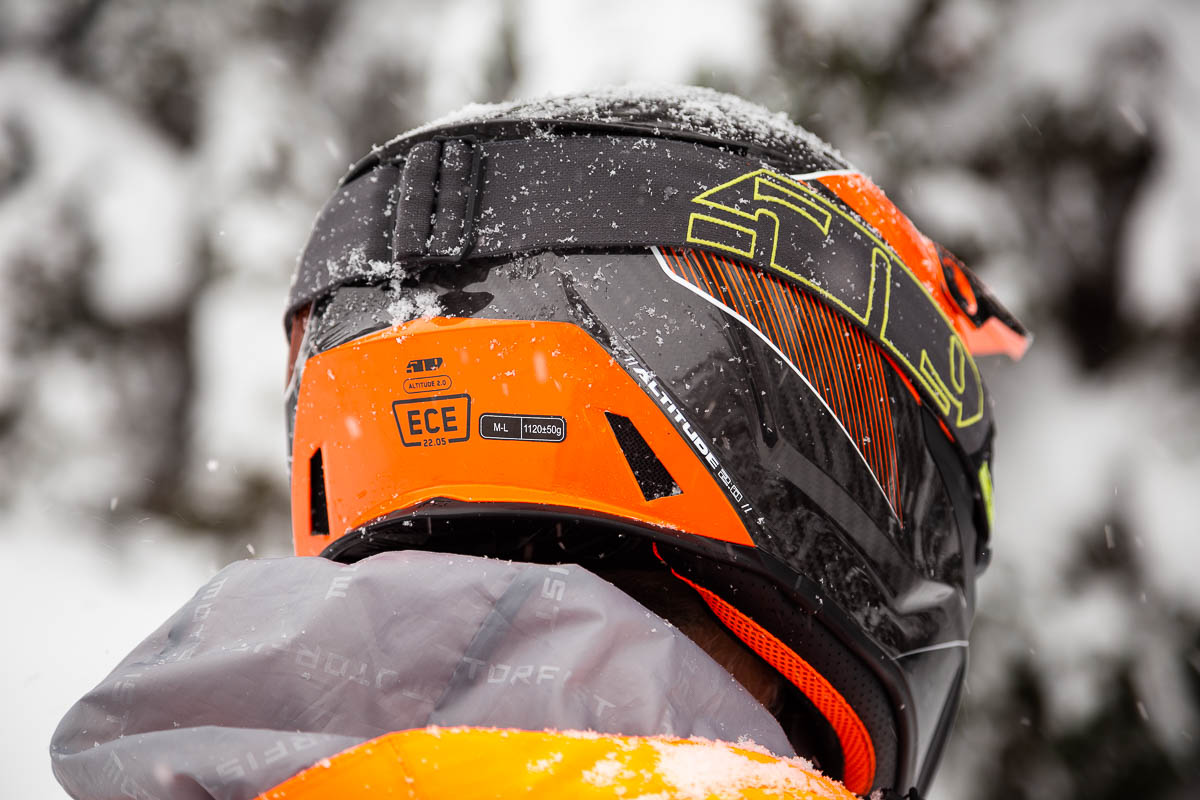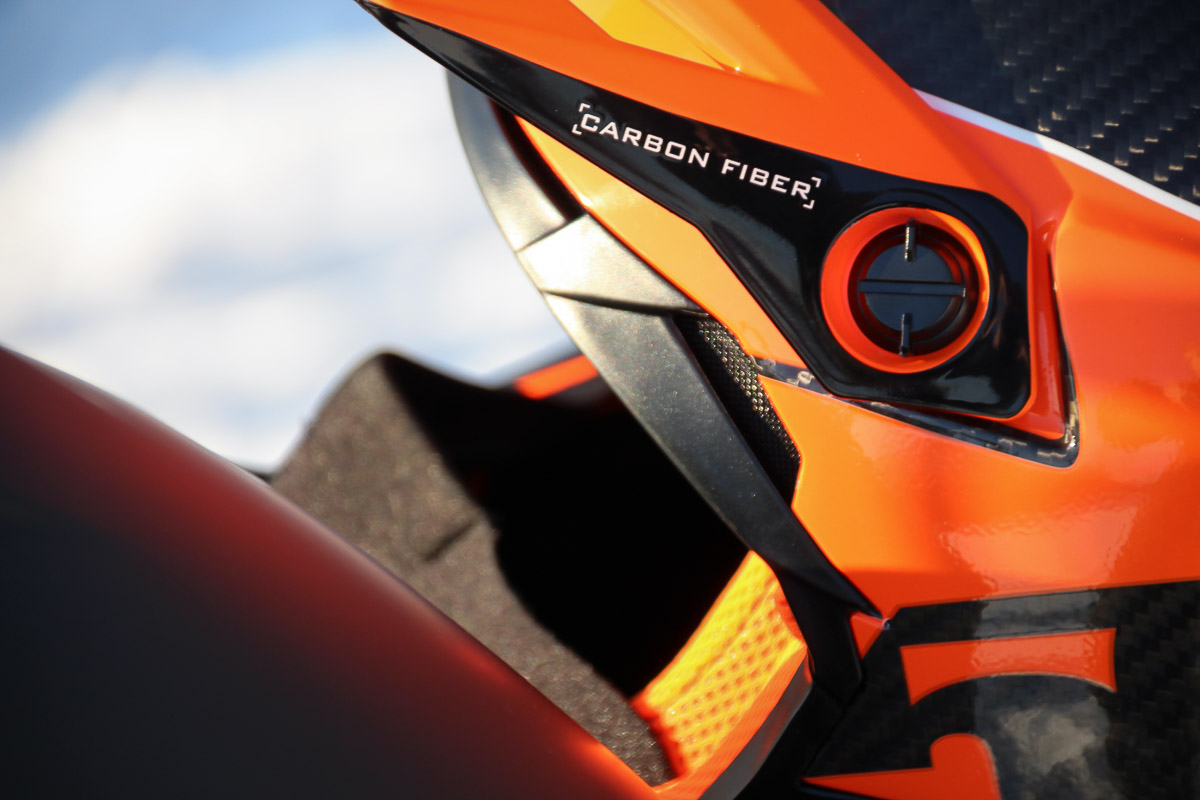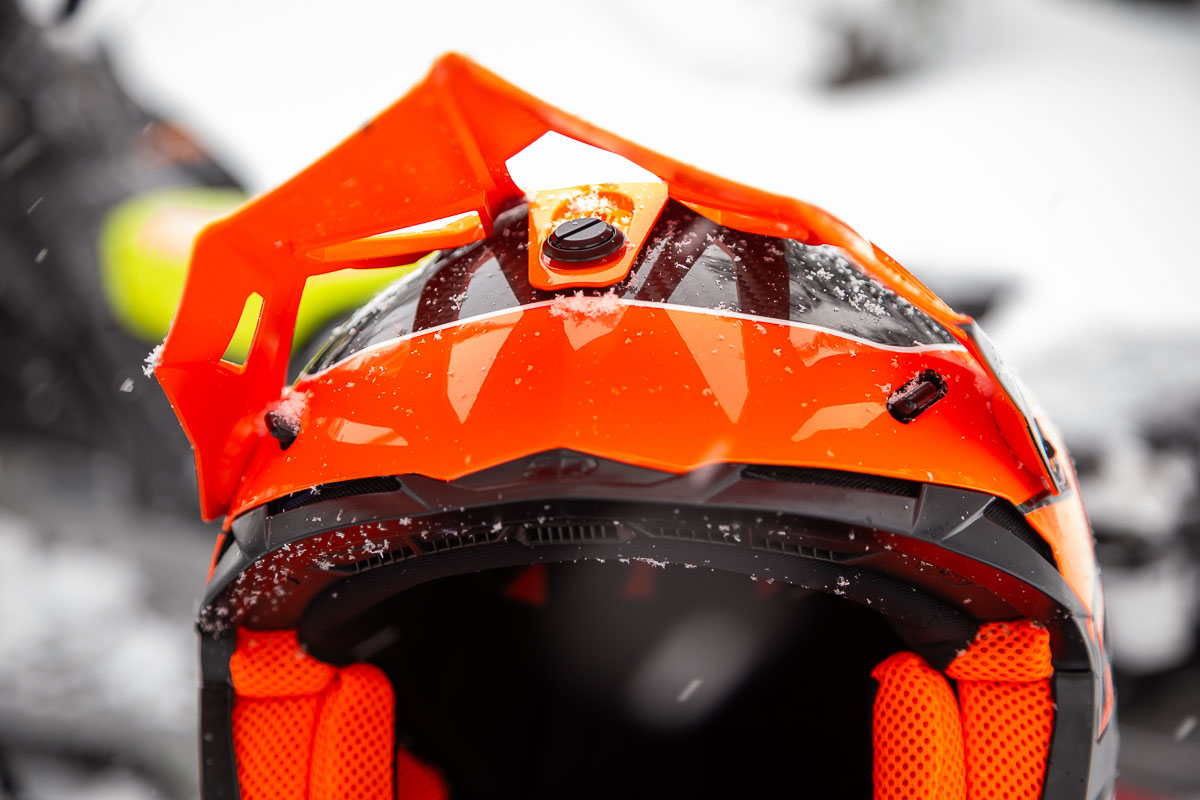The success of the first 509 Altitude Helmet has since spawned a 2.0 model with several variations. I currently have both the standard fibreglass 509 Altitude 2.0 Helmet and the Carbon Fiber 3K Hi-Flow version.
For riders looking for a current 509 Altitude 2.0 Helmet review, I wanted to answer the question: Is the additional expense of the Carbon Fiber helmet worth it, or should you put that extra cash into 91 premium?

509 Altitude 2.0 Helmet Review: Carbon vs Standard
What’s the difference?
There’s a pretty significant difference in price between the two helmet models, with the Carbon Fiber 3K Hi-Flow adding some premium features over the “standard” fibreglass model.
The Carbon Fiber 3K model is 509’s lightest, most durable helmet to date, using—you guessed it—a hand lay-up carbon fibre composite construction.
The other primary difference is that the more expensive helmet provides high flow properties, for enhanced cooling as a result of better airflow through the helmet. This is achieved with a 40% larger chinbar intake and rear exhaust vents.
Both helmets feature vents with shutter closures above the eye port and removable plugs that can be used to increase cooling as needed.
Pricewise, the Carbon Fiber 3K Hi-Flow Helmet checks in at $650 CAD, while the standard Altitude 2.0 Helmet will set you back $500 CAD.

Weight
In the mountains, weight is the enemy whether it’s in your backpack, chaincase or even your belly. It’s the reason that four-stroke sleds are mostly relegated to lakes and groomed trails.
No amount of horsepower can turn a scud into the hop-over ballerina of your dreams. In the same way, the weight of a helmet is much more important than even a sexy graphics package.
In addition to causing less strain on your neck over the course of a day, a lighter helmet will impart lower centripetal forces while mid-scorpion.
Studies have also found that helmet weight significantly impacts cognitive performance. Finally, an explanation for the decision to drop down into that drainage at the end of the day!
The lighter weight of the Carbon Fiber 3K helmet is noticeable as soon as you pick it up. The standard lid feels similar in heft to most MX style helmets, but the Carbon is just “flickable”.
On my trusty gram scale (college business project!), the Carbon came in at 1193 Grams vs. 1280 for the standard bucket. The internet says this 87 gram difference is equivalent to 4 AA batteries, 90 paper clips, or one Chihuahua puppy. From experience, I can tell you that after a full day wearing each lid, you can really feel the difference of not having the weight of an extra dog on your head.
Safety
Both 509 Altitude 2.0 helmets sport the ECE 22.05 safety certification, which is a modern standard that allows for legal on-road use in Canada.

The shape of the Altitude 2.0 helmet integrates well with my Leatt neck brace, leaving enough room to forget you’re even wearing it.
Naturally, the carbon version provides a stronger shell than the less-expensive standard model.

There is an Altitude Pro Carbon Fiber model that utilizes the MIPS Brain Protection System that is designed to reduce the impact of rotational forces on the brain. Unfortunately, neither of my helmet models use that. It would be nice to see the implementation of MIPS or 6D damper technology in all high-end helmets these days.
Style
This is where the Spokane area’s reputation for design and high fashion really shows through. These helmets look great from any angle and in my opinion is hands down the best-looking helmet in the mountains.
The Black Ops version goes great with my Motorhead concert Tees.

The Carbon Fiber 3K in Orange Gloss is a work of art and I sometimes just leave it on the coffee table just to stare at.
Fortunately there are colours to match any 509 or other clothing combination, if you’re fashion conscious.

Other Design Considerations
Visually at a glance, both helmets look pretty identical except for shell composition, with the standard bucket using fibreglass as mentioned.
Sizing is true and the cheek pads and interior on both are comfy without pinch points.
Both helmets use the very cool Fidlock chinstrap strap closure system. Fidlock can be operated with gloves on, and it beats the hell out of the old double-D ring we are all used to for ease of use.

The breathbox on both helmets seems to seal very well and I had no issues with fogging goggles when paired with 509’s Sinister X7.

Airflow on both helmets is controlled by two sliders that are located rather inconveniently under the peak.

The peak itself is a good length and louvered enough that it doesn’t try to peel your head off until you approach ludicrous speed.
The eye port is sufficiently wide, but field of view is not as generous as my old school AXO RX5 Carbon/Scott goggle combo.

509 Altitude 2.0 Helmet Review Summary
Overall, the Altitude 2.0 is an excellent choice for many sledders.
The rider that throws down an extra $150 CAD for the Carbon Fiber 3K High Flow model will be investing in a helmet that makes a difference in their own performance and comfort, with a look that is just deadly. I think it’s worth it.
Otherwise, the standard version is a great value and is every equal of the Carbon model except for a bit less airflow and the extra weight of that wee Chihuahua wrapped around your noggin’.
– Gregg


